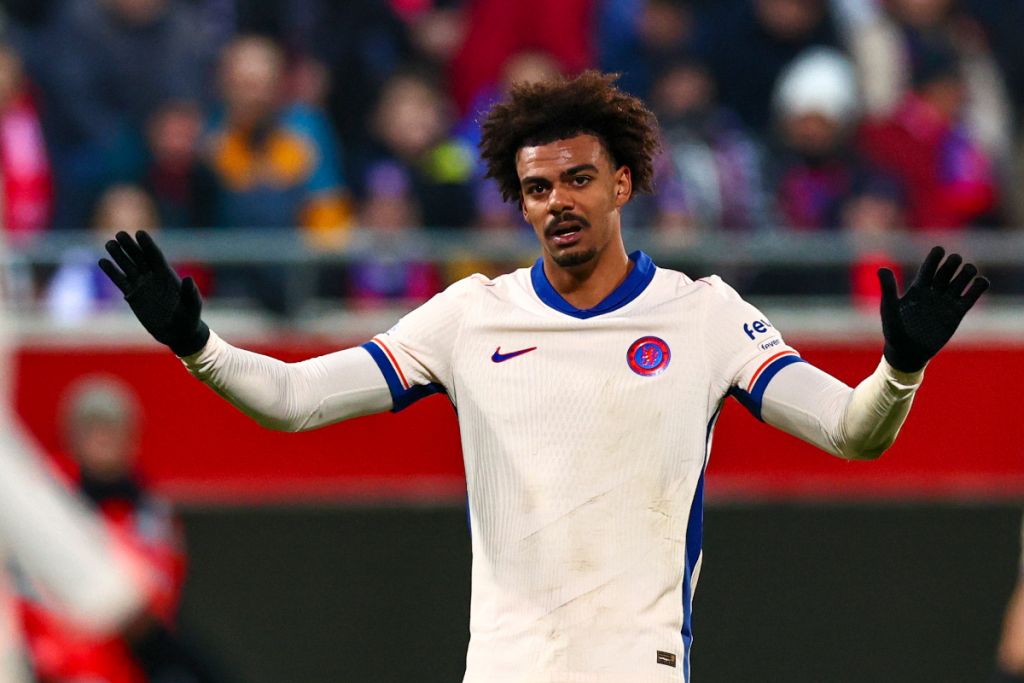Beyond the Odds: A Deep Dive into Football Betting Trends and Predictions

Football betting offers many options, ranging from simple match outcome wagers to more complex bets like player performance.
1 year ago
Understanding these types can provide insights into how betting markets operate and the logic behind the odds.
Live betting, also known as in-play betting, has significantly increased popularity among football enthusiasts. This form of betting allows individuals to place bets on various aspects of the game as it unfolds, such as the next team to score, the next player to receive a yellow card or the outcome of a corner kick. The dynamic nature of live betting adds an extra layer of excitement, as odds fluctuate in real-time based on the on-field action. Moreover, the ability to analyze the game as it progresses enables bettors to make more informed decisions, often leading to a higher engagement level compared to pre-match betting.
In addition to live betting, the over/under goals market has become a staple among football bettors, particularly in leagues where high-scoring games are frequent. This bet type allows punters to predict whether the total number of goals scored in a match will be above or below a specified figure. It's a popular choice because it doesn't require picking a winner, making it less risky in matches where the outcome is uncertain. On the other hand, accumulators continue to attract bettors due to their high reward potential. Combining multiple selections into one bet, accumulators can offer substantial payouts from relatively small stakes. However, they come with increased risk as every selection must win for the bet to pay out. This blend of risk and reward makes accumulators especially appealing to those looking for bigger returns on their football betting investments.
Expanding on the topic of League-Specific Betting Trends, let's delve deeper into the distinct characteristics of the Premier League and La Liga, which are among the most popular football leagues in the world.
The Premier League, with its global following, is renowned for its high level of competitiveness and unpredictability, making it a hotspot for bettors seeking thrill and potentially high returns. Matches in this league often see underdogs pulling off unexpected victories, a trend that savvy bettors capitalize on. For example, the infamous Leicester City's title win in the 2015-16 season was a betting anomaly that resulted in massive payouts for those who had placed early bets on them. This unpredictability is further reflected in the betting patterns for the Premier League, where bettors are more inclined to place bets on 'Draw No Bet' and 'Both Teams to Score' markets, as these provide a safety net given the league's unpredictability. The intense rivalry games, such as the Manchester Derby or the North London Derby, also see a surge in betting activities, with fans and bettors alike trying to capitalize on the fierce competition.
In contrast, La Liga betting trends exhibit a different pattern, heavily influenced by the league's star players and their performance on the field. Bettors often place individual player bets, such as 'Player to Score Anytime' or 'Player to Score Two or More Goals', particularly on renowned forwards like Lionel Messi (during his tenure at Barcelona) or Karim Benzema at Real Madrid. This trend is a testament to the impact of individual talent in La Liga, where star players often dominate games. Furthermore, the tactical nature of La Liga, with its emphasis on possession and technical skill, leads to more predictable outcomes, especially in matches involving top teams like Barcelona, Real Madrid, and Atletico Madrid. Bettors, therefore, tend to favour 'Over/Under Goals' bets, as these teams have a track record of high-scoring games or tight defensive performances. The El Clásico, one of the most watched football matches globally, not only garners immense viewership but also sees a significant spike in betting, with fans analyzing team forms, head-to-head statistics, and player fitness to place informed bets.
In both leagues, the context of the match, such as its significance in the title race, potential for relegation, or historical rivalry, plays a crucial role in shaping the betting trends. These insights into league-specific betting trends highlight the importance of understanding the nuances of each league for anyone interested in football betting.
In football betting, team form and player performance play crucial roles in shaping betting decisions.
A team in good form, indicated by a winning streak or consistent strong performances, is typically more likely to win upcoming matches. Conversely, a team struggling with player injuries or low morale might perform poorly in future games. It's important, however, not to rely solely on current form, as soccer is unpredictable, and even top teams can have off days.
Individual player contributions can also significantly influence match outcomes. For instance, the odds can shift drastically if key players in a well-performing team are underperforming or injured. A star player's exceptional season can increase the probability of their team's victory, affecting the betting odds. Conversely, if the player is in a rough patch or sidelined, the odds might suggest a lower chance of winning. Thus, analyzing player performance offers a nuanced understanding of odds, enabling more informed betting decisions. Remember, soccer is a team sport, but individual brilliance can often tip the scales in closely contested matches.
The sports betting industry has been significantly transformed by technological advancements, impacting how bets are placed and how bettors interact with the gaming world.
One of the most significant shifts has been the rise of mobile betting. The prevalence of smartphones has led to a scenario where most bettors now prefer to use their devices for betting, rather than visiting traditional betting shops or casinos. Mobile betting apps, such as the Betway app, provide users with real-time match updates, odds, and sports news, significantly enhancing the betting experience and decision-making process.
The use of big data and advanced analytics has revolutionized sports betting by providing an abundance of historical and real-time data. Bettors now have access to in-depth analysis of teams, players, and matches, enabling more informed betting strategies. This analytical approach, underpinned by sophisticated algorithms, enhances the accuracy of predictions and betting decisions.
These days most professional bettors use odds calculators for calculating their probabilities and returns on their bets. Far from being what they used to be, simple developed tools that offered basic calculations, today there are a good amount of sophisticated betting calculators that combine different types of bets, and diverse variances on the bets. One of the most recent ones, that we encountered while doing this research, is the bet calculator available at The Odds Calculator, where you can even save your bets and have a history of your previous calculations.
AI and machine learning technologies are increasingly being utilized to process vast amounts of sports data. These technologies can predict outcomes and set betting odds with greater precision than traditional methods. The result is a more efficient and accurate betting landscape, benefiting both bookmakers and bettors.
There's a noticeable correlation between betting trends and match outcomes, although it's not always predictive. For example, heavy betting on a favorite can sometimes overlook the underdog's potential, leading to surprising results.
The analysis of large datasets, including event and positional data, suggests that technical, physical, and tactical performance indicators can be valuable in predicting match outcomes. This approach considers factors like shots, passes, running distances, and areas of pitch control. However, the complexity and volume of data involved present challenges in aggregating this information to meaningful match-level indicators.
Moreover, the predictive value of pre-game information (like betting odds) and in-play information (like goals in the first half) has been tested, revealing that combining these can enhance forecasting accuracy. The research demonstrates that while there is a correlation between betting trends and match outcomes, the relationship is nuanced and influenced by a variety of in-game factors and data points
Live betting, also known as in-play betting, has significantly increased popularity among football enthusiasts. This form of betting allows individuals to place bets on various aspects of the game as it unfolds, such as the next team to score, the next player to receive a yellow card or the outcome of a corner kick. The dynamic nature of live betting adds an extra layer of excitement, as odds fluctuate in real-time based on the on-field action. Moreover, the ability to analyze the game as it progresses enables bettors to make more informed decisions, often leading to a higher engagement level compared to pre-match betting.
In addition to live betting, the over/under goals market has become a staple among football bettors, particularly in leagues where high-scoring games are frequent. This bet type allows punters to predict whether the total number of goals scored in a match will be above or below a specified figure. It's a popular choice because it doesn't require picking a winner, making it less risky in matches where the outcome is uncertain. On the other hand, accumulators continue to attract bettors due to their high reward potential. Combining multiple selections into one bet, accumulators can offer substantial payouts from relatively small stakes. However, they come with increased risk as every selection must win for the bet to pay out. This blend of risk and reward makes accumulators especially appealing to those looking for bigger returns on their football betting investments.
Expanding on the topic of League-Specific Betting Trends, let's delve deeper into the distinct characteristics of the Premier League and La Liga, which are among the most popular football leagues in the world.
The Premier League, with its global following, is renowned for its high level of competitiveness and unpredictability, making it a hotspot for bettors seeking thrill and potentially high returns. Matches in this league often see underdogs pulling off unexpected victories, a trend that savvy bettors capitalize on. For example, the infamous Leicester City's title win in the 2015-16 season was a betting anomaly that resulted in massive payouts for those who had placed early bets on them. This unpredictability is further reflected in the betting patterns for the Premier League, where bettors are more inclined to place bets on 'Draw No Bet' and 'Both Teams to Score' markets, as these provide a safety net given the league's unpredictability. The intense rivalry games, such as the Manchester Derby or the North London Derby, also see a surge in betting activities, with fans and bettors alike trying to capitalize on the fierce competition.
In contrast, La Liga betting trends exhibit a different pattern, heavily influenced by the league's star players and their performance on the field. Bettors often place individual player bets, such as 'Player to Score Anytime' or 'Player to Score Two or More Goals', particularly on renowned forwards like Lionel Messi (during his tenure at Barcelona) or Karim Benzema at Real Madrid. This trend is a testament to the impact of individual talent in La Liga, where star players often dominate games. Furthermore, the tactical nature of La Liga, with its emphasis on possession and technical skill, leads to more predictable outcomes, especially in matches involving top teams like Barcelona, Real Madrid, and Atletico Madrid. Bettors, therefore, tend to favour 'Over/Under Goals' bets, as these teams have a track record of high-scoring games or tight defensive performances. The El Clásico, one of the most watched football matches globally, not only garners immense viewership but also sees a significant spike in betting, with fans analyzing team forms, head-to-head statistics, and player fitness to place informed bets.
In both leagues, the context of the match, such as its significance in the title race, potential for relegation, or historical rivalry, plays a crucial role in shaping the betting trends. These insights into league-specific betting trends highlight the importance of understanding the nuances of each league for anyone interested in football betting.
In football betting, team form and player performance play crucial roles in shaping betting decisions.
A team in good form, indicated by a winning streak or consistent strong performances, is typically more likely to win upcoming matches. Conversely, a team struggling with player injuries or low morale might perform poorly in future games. It's important, however, not to rely solely on current form, as soccer is unpredictable, and even top teams can have off days.
Individual player contributions can also significantly influence match outcomes. For instance, the odds can shift drastically if key players in a well-performing team are underperforming or injured. A star player's exceptional season can increase the probability of their team's victory, affecting the betting odds. Conversely, if the player is in a rough patch or sidelined, the odds might suggest a lower chance of winning. Thus, analyzing player performance offers a nuanced understanding of odds, enabling more informed betting decisions. Remember, soccer is a team sport, but individual brilliance can often tip the scales in closely contested matches.
The sports betting industry has been significantly transformed by technological advancements, impacting how bets are placed and how bettors interact with the gaming world.
One of the most significant shifts has been the rise of mobile betting. The prevalence of smartphones has led to a scenario where most bettors now prefer to use their devices for betting, rather than visiting traditional betting shops or casinos. Mobile betting apps, such as the Betway app, provide users with real-time match updates, odds, and sports news, significantly enhancing the betting experience and decision-making process.
The use of big data and advanced analytics has revolutionized sports betting by providing an abundance of historical and real-time data. Bettors now have access to in-depth analysis of teams, players, and matches, enabling more informed betting strategies. This analytical approach, underpinned by sophisticated algorithms, enhances the accuracy of predictions and betting decisions.
These days most professional bettors use odds calculators for calculating their probabilities and returns on their bets. Far from being what they used to be, simple developed tools that offered basic calculations, today there are a good amount of sophisticated betting calculators that combine different types of bets, and diverse variances on the bets. One of the most recent ones, that we encountered while doing this research, is the bet calculator available at The Odds Calculator, where you can even save your bets and have a history of your previous calculations.
AI and machine learning technologies are increasingly being utilized to process vast amounts of sports data. These technologies can predict outcomes and set betting odds with greater precision than traditional methods. The result is a more efficient and accurate betting landscape, benefiting both bookmakers and bettors.
There's a noticeable correlation between betting trends and match outcomes, although it's not always predictive. For example, heavy betting on a favorite can sometimes overlook the underdog's potential, leading to surprising results.
The analysis of large datasets, including event and positional data, suggests that technical, physical, and tactical performance indicators can be valuable in predicting match outcomes. This approach considers factors like shots, passes, running distances, and areas of pitch control. However, the complexity and volume of data involved present challenges in aggregating this information to meaningful match-level indicators.
Moreover, the predictive value of pre-game information (like betting odds) and in-play information (like goals in the first half) has been tested, revealing that combining these can enhance forecasting accuracy. The research demonstrates that while there is a correlation between betting trends and match outcomes, the relationship is nuanced and influenced by a variety of in-game factors and data points







Comments